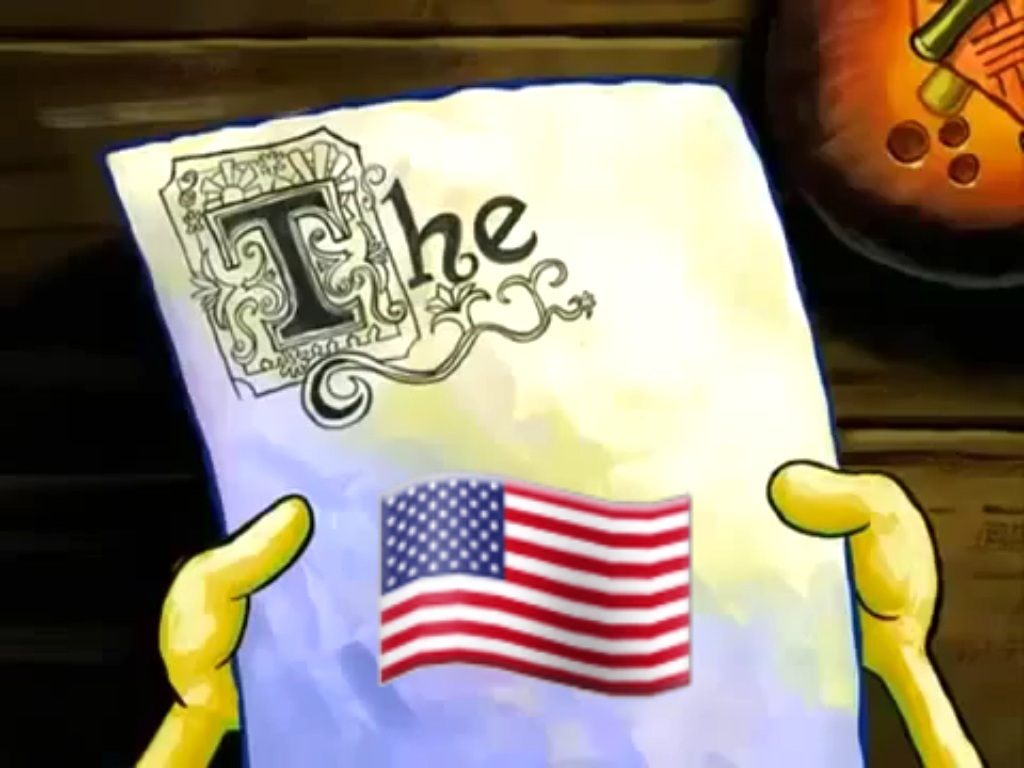Mein Vorschlag: de
De Frau
De Auto
De Berg
De Jungs
De Sonne
De Internet
De Probleme werden alle gelöst und de Menschen werden gerne de deutsche sprache lernen.
und dann einfach “ne” als unbestimmten Artikel. Ich stimme de Vorschlag von ne Benutzer aus de Forum komplett zu!
Deutsch 2 just dropped
*Detsch
nh
Die Rheinländer haben’s raus. Für die ist alles dat.
Das ist doch dann bloß niederländisch!
De Anfang des Niederlandifizirung 💓
“-fizierung” schreibt man mit langem ie. Sorry, aber wenn meine Dienste angefordert werden, muss ich zur Stelle sein und meine Pflicht tun.
I summon you, @dogsoahC@lemm.ee.
Minge Schuuld. Dit war dat letzte Moahl.
Aber Ließ den Kontext!
😆😄🤣
ietst sind son seks bukstaben auskesaltet, di sulseit kan sofort fon neun auf swei iare ferkürtst werden, anstat aktsik prosent rektsreibunterikt könen nütslikere fäker wi fisik, kemi oder auk reknen mer kepflekt werden.
für einen moment dachte ich, der satz sei im dialekt meines ehemaligen wohnortes verfasst worden.
Erinnert mich an das umstrittene “Schreiben nach Gehör”
De Benutzer
Singular oder Plural?
Kontext
Erinnert mich an diesen Klassiker https://youtu.be/Pm4ePwjHAH4
In Finland we forget all that and glue some random shit in the end of the word.
Have fun learning the language. Ha ha ha.
Perkele intensifies
Meanwhile, Norway spells everything exactly like it’s pronounced with no regard for grammar and here in Denmark, the only way to know whether to use “et” or “en” for a noun is to know already.
The languages of Northern countries (including Iceland) are so weird that you’d be somewhat justified in suspecting that bigots made it that way on purpose to make life difficult for non-native people trying to learn them 😂
I often read americans saying something like: people learning english must be really confused when they see “yacht” haha so hard, it’s pronounced different than it’s written.
Uff yes such a hard language to decrypt
It’s a hard language to read if you don’t know it but our syntax is simple and there’s little conjugation so it’s quite easy to learn to produce.
I love the simplicity of Indonesian.
There is no ‘the’.
If you want to say the word for a group of something, you can usually double up the noun.
Book = buku
Many books = buku-buku
There are no conjugations or tenses since it’s implied based on context.
Eg. Tadi pagi saya pergi ke pasar.
Literally translated as “This morning I go to market”. Since the morning occurs in the past, the past tense is implied and understood.
In informal conversations, you can also usually drop the subject if you’re talking about yourself.
They also do the doubling for emphasis. I love the “Hati Hati” signs everywhere that tell you to drive extra careful.
Thai and Khmer do the same with tenses and just add tomorrow, yesterday, last year … as context.
One of my favorites in thai is that the common question “gin khaw/กินข้าว” means “Have you eaten?”, “do you want to eat” and “Come eat!” all at the same time and that its also most often meant this way. “Eat rice” in the past, present and future.
One of the few Thai phrases I remember from my trip there (and forgive my phonetic spelling) is layo-layo, which, when said to a tuk tuk driver means “I have no fear of death” (actually “faster”, but same result).
Is it possible to answer no to กินข้าว without being rude?
lmao. This makes German so much easier!
Alle Bundesland-Bundesland hat verschieden Grundstücksverkehrsgenehmigungszuständigkeitsübertragungsverordnung-Grundstücksverkehrsgenehmigungszuständigkeitsübertragungsverordnung.
Indonesians have better “The” and it’s “Nya”, for example
“Where is the man at?” = “Dimana orang nya :3”
Yeah I just realised my error after posting about ‘nya’.
Japanese also gets rid of the article, and the subject is very often dropped because it’s clear from context. Plural just does not seem to exist at all, because who cares if you have an apple or apples.
Sleep. (ねる。) For example can be a complete sentence. It’s also somewhat possible in English but it’s rare.
A: what did you do on the weekend? B: Sleep.
I love Japanese grammar, it’s fun to learn. But Indonesian seems to have fun and simple grammar too.
THE BART THE

🇬🇧
🇨🇦🇭🇲🇳🇿🇮🇪
They’re all borrowing it, just like the US.
We didn’t ask to be colonized.
And hasn’t it worked out horribly for you all
Well at least it wasn’t the dutch.
Ein Werwolf eines Nachts entwich
von Weib und Kind und sich begab
auf eines Dorfschullehrers Grab
und bat ihn: „Bitte, beuge mich!“
Der Dorfschulmeister stieg hinauf
auf seines Blechschilds Messingknauf
und sprach zum Wolf, der seine Pfoten
geduldig kreuzte vor dem Toten:
„Der Werwolf“ – sprach der gute Mann,
„des Weswolfs, Genitiv sodann,
dem Wemwolf, Dativ, wie man’s nennt,
den Wenwolf, - damit hat’s ein End’.“
Dem Werwolf schmeichelten die Fälle,
er rollte seine Augenbälle.
„Indessen“, bat er, „füge doch
zur Einzahl auch die Mehrzahl noch!“
Der Dorfschulmeister aber mußte
gestehn, daß er von ihr nichts wußte.
Zwar Wölfe gäb’s in großer Schar,
doch „Wer“ gäb’s nur im Singular.
Der Wolf erhob sich tränenblind –
er hatte ja doch Weib und Kind!!
Doch da er kein Gelehrter eben,
so schied er dankend und ergeben.
Christian Morgenstern
This makes me want to learn german
Die Sprache der Dichter und Denker, ja ja.
Easy, Slavic languages have declination of names. Both first and last names. Some last name are gender specific (different suffixes for males and females but considered “the same”). Have fun in non-slavic countries trying to convince the officials that you have the same last names (mother and the son).
Only Finnish, Hungarian and some non indo-european languages can beat us (like Chinese or Japanese).
I’ll give you a small excerpt of very known Polish comedy (it’s very dark humor but well). Germans will understand at least 50% of it (please have some humor :-))
Czech: we have no article at all
Also Czech: we have 7 cases btw and we use our demonstrative adjective quite often, not often enough to qualify as article but still
I guess if you have “vole” you don’t need any articles. The last time I heard spoken Czech language every third word was “vole”. That was years ago. Have you managed to further simplify your language by replacing more words with “vole”?
I honestly barely speak Czech but official, ten/ta/to/… aren’t called articles while – from what duolingo tought me – it is used more than in Russian but less than in German (which is my native language)
ten/ta/to/… aren’t called articles
I haven’t claimed that, have I?
I think, the discussion can be simplified if we talk about determiners. Articles are determiners. Czech ten/ta/to are determiners, but not articles.
I didn’t mean to disagree with you. I was more like sorry for pretending to know stuff.
Only point I was kind of trying to make is how fussy these terminologies are. All modern articles started as determinative adjectives and at some point turned into articles. Czech is on that way, and further than Russian, but not there yet. So I totally agree with calling them determiners but not articles.
I guess if you have “vole” you don’t need any articles
So you either need small rodents or journalism?
“Vole” is the fifth case of “vůl” which means ox and is still in use.
So the dichotomy is oxen or journalism, then?
Sounds like 1700s England 😄
Multilingual LLM tokenizers:
guessilldie.jpg
Chinese: None of this is necessary.
Was waiting for a Finn to show up … Or a Hungarian
Ja ja, Deutsch schwer blah blah, ganz ganz altes Maimai. Die italienischen Artikel sind deutlich komischer als die Deutschen, einerseits Unterscheidung zwischen Genus und andererseits abhängig vom Wortanfang, il ragazzo, l’uomo und lo studente sind alle drei Singular Maskulinum. Im Plural muss man vom Artikel her immer noch zwischen Maskulinum und Femininum unterscheiden und dann gibt es Wörter die im Singular Masukulinum sind aber im Plural Femininum.
Dir ist schon klar, das die negativen Assoziationen alle von dir selbst kommen und so im meme gar nicht vorkommen.
All in your head.
Now do Croatian and get ready to get fucked… HARD!
Read that as
Now do a Croatian and get ready to get fucked… HARD!
Yes please!
deleted by creator
Don’t forget the “female” refrigerators and “male” cabinets or some such male/female/neutral.
cant forget irish: masculine an+T, an+L, an+D / feminine an+L, na+H, an+D / plural na+H, na+E, na+H














